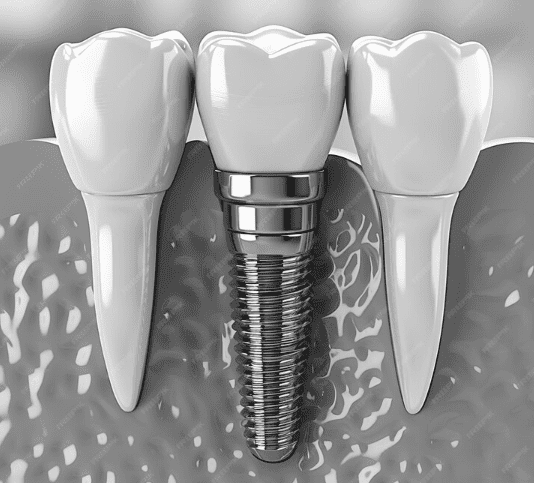Learn what are mini dental implants, how these implants work, and the benefits they offer in comparison to traditional dental implants. Discover their suitability for tooth replacement!
What Are Mini Dental Implants?
Dental implants are the biggest innovation in tooth replacement strategies and are designed to be permanent fixtures that look and feel like the natural teeth. However, those types of dental implants are not all the same and may not serve the purpose of restoring the natural beauty of dentition. Of all the choices above, mini dental implants have been identified as a more manageable solution in comparison to conventional implants, hence can be faster and easier to get fixed. Although the term is rather self-explanatory, what are (MDIs) exactly? But how do these sorts of implants differ from traditional implants? As promised, in this article, we will explore all the information you should have about mini implants, its process, and advantages.
What is a Mini Implant?
A mini implant is a kind of dental implant which is generally half the diameter of a regular dental implant. While traditional dental implants typically measure between 3.5 to 6 mm, mini implants are around 2.4 to 3 mm wide. This small size provides the patients with the opportunities which they may not have enough bone density for the normal implants. Mini implants are intended for prosthetic teeth providing strong foundation, that mimics the strength and durability of natural teeth.
Why Choose Mini Dental Implants?
There are various choices that patients can opt for when they need replacement teeth and these include the regular implants, bridges and the dentures. Mini dental implants, however, stand out due to several key advantages:
-
Less Invasive Procedure
Durbar among the mini implants is the ease of implantation due to the facts that they require a small incision to be made. Mini implants are however smaller in size and therefore they need a small hole to be made in order to fit in and this means that there is less surgery and even bone grafting. Specifically, mini implants are also suitable for patients with bone loss or relatively low bone density. In this way they can avoid additional operations as bone grafting, necessary in the case of traditional implants.
-
Faster Recovery Time
This makes mini implants to be more favorable because they do not have a long recovery time as those of the traditional method. This has revealed that the healing of patients usually takes a few days after the procedure to enable them to go back to their normal activities. This makes mini implants quite suitable for those who may be interested in a quicker solution having few complaints about post surgery pains.
-
Cost-Effective
Most miniature implants prove cheaper than other implants. The type of dental material applied, the shorter time the procedure takes, and lesser chances for the dentist to perform other procedures such as bone grafting makes them cheaper relative to the other options for tooth replacement.
-
Suitability for Denture Stabilization
In case of patients who wear dentures, the mini implants are helpful in anchoring and supporting the dentures. These implant supported dentures enables the patients to consume beverages and food with ease. They can talk and smile knowing well that the dentures will not come off.
-
Orthodontic Procedures
Mini implants also offers a less invasive and more efficient alternative to traditional orthodontic techniques. These are small, self-tapping screws. They are placed directly into the jawbone and act as anchors for orthodontic appliances.
The Mini Implant Procedure
Mini dental implants are therefore most often inserted through an easy uncomplicated surgery. Here’s a step-by-step breakdown of what to expect:
-
Initial Consultation
Your dentist will first need to conduct a detailed examination including assessment of the health of your gums, your jaw bone and the individual teeth that will need to be replaced. It also assists in defining whether mini implants can address the case at hand or not.
-
Anesthesia
Another advantage of the mini dental implant procedure is that it usually is a localized anesthetic procedure. This means that you will be able to open your eyes during the procedure and you will still not even get a sensation of pain at the location where the treatment is being administered. The process of inserting the implants is not as complicated as in the conventional method and one may not require the general anesthesia.
-
Implant Placement
Your dentist will make an incision into the gum and the jawbone using a specialized tool will be used in placing the mini implant. Since the implant is small, the hole they need to make is also small thus minimizing pain and time that one needs to recover.
-
Screwing of the Artificial Crown
When the mini implant is fixed firmly into position, prosthesis such as the tooth or denture can then be connected. Depending on the circumstances of your specific situation, this might need to be done right now or at the earliest possible time when the area has actually healed up from surgery.
Are Mini Dental Implants Right for You?
Several patients are good candidates for mini implants, yet they aren’t necessarily the best option for all patients. Here are some factors to consider when deciding whether mini implants are the best option:
Bone Density:
If you have loss your bone mass or have comparatively lesser bone density, these are perfect because, mini implants need less amount of bone strength than the regular implant.
Budget:
Mini implants are somewhat cheaper than other implants and this makes them attractive to users.
Tooth Replacement Needs:
It is ideal for placing mini implants where there are fewer teeth or used for anchor to secure dental prosthesis. They may not be well suited for larger tooth replacements which otherwise call for greater stability.
Mini Implants vs. Traditional Implants
There are advantages that are associated with mini implants even though they are relatively smaller than the conventional implants. They are preferred due to their smaller size and for low bone density patients, fewer minimally invasive procedures are needed. They also have a shorter placement and healing time, some of them the patients get them fixed and the prosthetic teeth fitted in one visit. However, their standing power is lesser than that of the other common types of implants, particularly for greater teeth or forceful biting pressure. Standard dental implants are used whenever possible because of their sturdiness, especially for large teeth such as molars, though may need a bone graft to create bone mass. Mini implants are usually smaller in size and do not require bone grafts and therefore are quicker and less complex.
Maintaining Your Mini Dental Implants
As you would expect for any other teeth that are natural, your mini implant will need to be treated and cared for appropriately so that they can last to the longest possible time. Flossing, brushing and dental check-ups conducted by professional dentists are critical in fighting gum disease as well as in maintaining the proper health of implants. Mini implants can also last for quite some time if they are well taken care of; therefore, these implants offer long-term effect when it comes to missing teeth.
The Bottom Line
The benefits of mini dental implants are especially for those who have low bone density or for individuals who are looking forward to have a lighter and least invasive implants as compared to the classical ones. However, to get the diagnostic of the exact problem and to decide whether mini dental implants are suitable for you, it is necessary to address your dentist.
So, book an appointment with us today!








